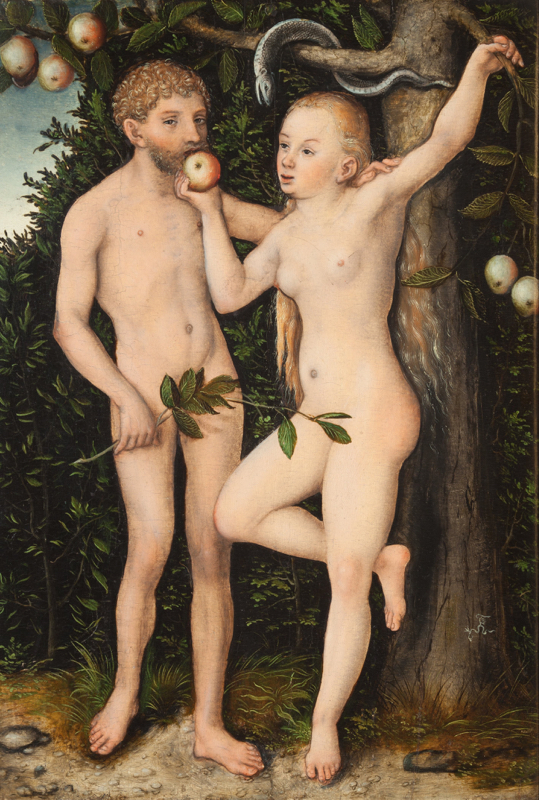|
A friend of mine recently told me that a mutual acquaintance of ours was considering having a sex change. I made some polite noises of interest, being both fascinated and acutely aware that this person's gender identity had absolutely nothing to do with me. He was going to change his name, too, once he went through with the procedure. He would no longer answer to Adam, but to Eve.
Involuntarily, I protested. I was frowned at for what was assumed to be my judgemental attitude, but the reality was quite different. I believe words have very powerful associations. Names, too. Especially biblical ones. Take a moment to consider what goes through your mind when you hear the phrase, 'Adam and Eve.' Immediately the words and images that spring to mind for me are God, tree, apple, snake, garden, paradise. Then follows lovers, nudity, and a mouth biting into an apple's flesh. These associations have more associations of their own; to follow each one would result in becoming trapped in an infinite regress, so let's not go there. Now, let's focus on one half of the pair, the 'other' half, Adam's alter ego, Eve. The first word that comes to my mind is Sin. Then tempt. Then snake. Then fall. I would hazard a guess yours might have been along the same lines. The cultural associations we have with the name of Eve are overwhelmingly negative. These associations have reverberated down the ages and many would argue that this narrative, and all the other narratives that have sprung off it, and all the institutions that have propagated the narrative and others like it, has ensured that the very idea of femininity remains tainted even still, more than 2,000 years after this origin story was first created. Adam's choice to become 'Eve' suggested to me that, at some level, he was uncomfortable with his proposed female identity. It was something tainted, sinful and dirty to him. I protested against him choosing the name 'Eve' because to undertake such a drastic, painful and irreversible procedure on your body when your head and heart might not be fully behind it seemed to me like a disastrous move to make. This might have been just the way I read it, and many could argue that his choice to change from Adam to Eve showed a touch of subversive humour. But I believe cultural narratives go far deeper than that. Especially ones with biblical associations, and especially when those stories with biblical associations are being told or referenced or alluded to in Ireland. So, when you have something to say - it might be an article, or a speech, or an introduction - choose your words carefully. Weigh them out. Feel into them for what they suggest beyond their first layer. Words are not solid, formed things; they are slippery buggers who, once let out into the world, can twist and bend and shape shift into all sorts of unexpected casts. And the casts could take entirely different forms depending on where they travel. In the end, Adam decided against the sex change. As he put it, his 'head wasn't in the right place.' Words may not feel as permanent as a medical procedure, but ideas that take hold grow roots and can live on long after a physical body has worn out. Remember the awesome power your words have, and use that power wisely.
1 Comment
|
Archives
July 2024
AuthorRM Clarke is a writer and voice-over artist. She has written for various literary mags and anthologies and won awards. She has put her voice to most things she can think of. Categories |

